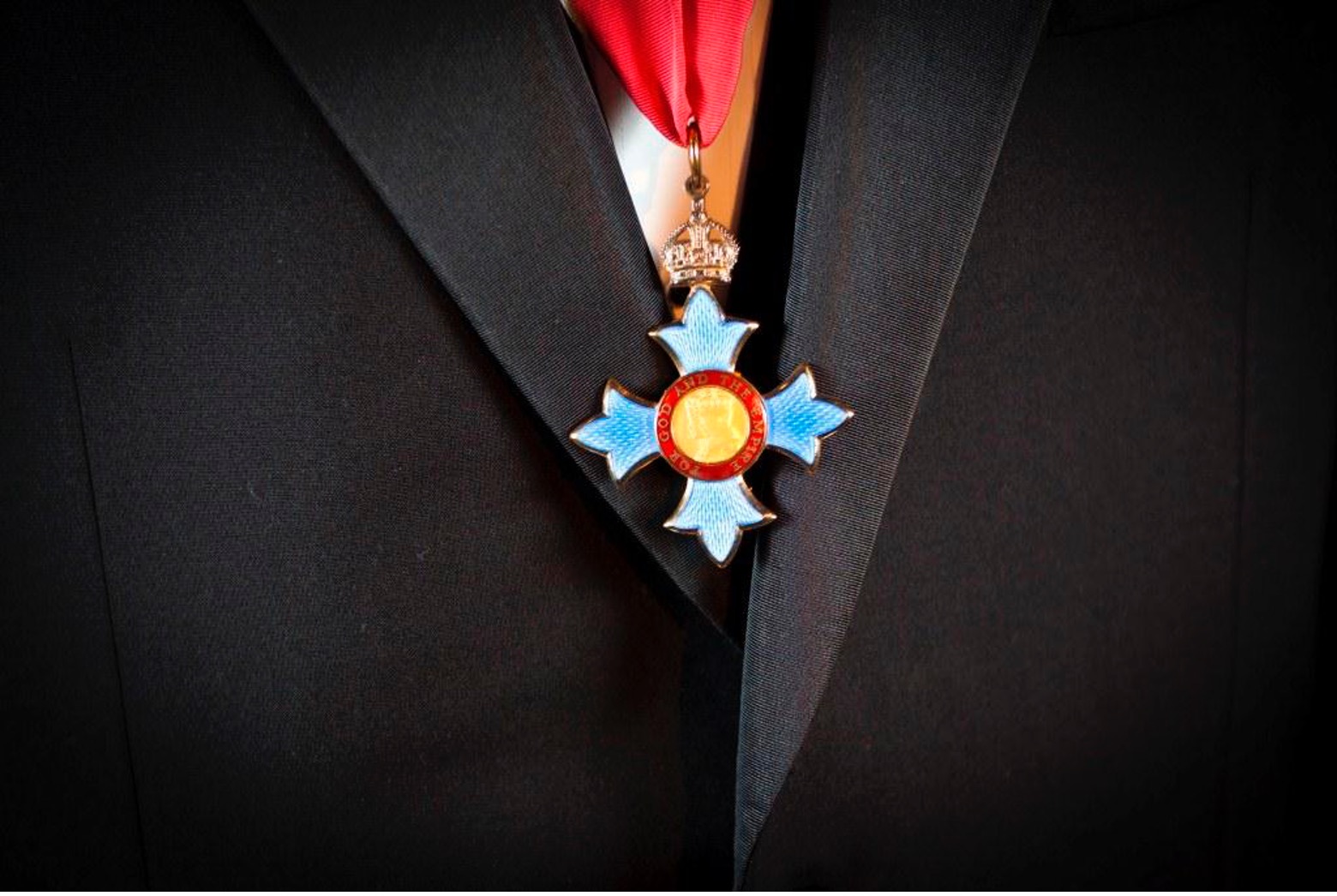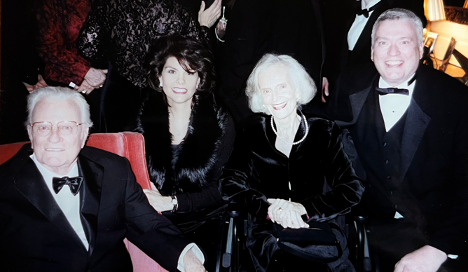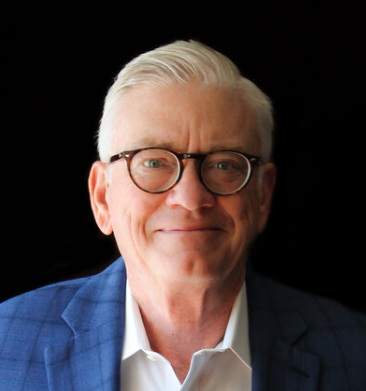Why was Queen Elizabeth II friends with the evangelist Billy Graham for more than 40 years?
As a long-time aide to Graham, I got to see this remarkable friendship for myself

“Queen Elizabeth II, the UK’s longest-serving monarch, has died at Balmoral aged 96, after reigning for 70 years,” BBC, Sept. 8, 2022
Like most everyone throughout the British Commonwealth, across the U.S. and the rest of the world, I received this breaking news about the end of an unprecedented era with profound sadness and grief.
It was the first day of my life without Elizabeth II on the throne, as she was coronated in 1953 just six weeks before I was born. And America has adopted her as “our queen,” too.
Several hours later, a British friend texted me from London that the BBC had been reporting all afternoon about Her Majesty’s affection for Reverend Billy Graham.
It was true.
I had seen it first-hand because I had served as personal media spokesperson for Mr. Graham for nearly 34 years, including several occasions when he had been with the queen and preached to The Royal Family.
And it’s a fascinating story.
NEITHER THE QUEEN NOR GRAHAM GREW UP EXPECTING THE GLOBAL SPOTLIGHT
In recent days, I’ve been reflecting on the notable influence and impact of these two extraordinary individuals – Britain’s longest-serving monarch who reigned over the United Kingdom for 70 years, and the American evangelist who represented the Kingdom of God through a global public ministry spanning more than six decades.
Despite intense scrutiny by a watching world and the international media, both served without a hint of personal scandal, and modeled character, integrity and authenticity for us all.
As a child, Elizabeth was never expected to become queen.
She was third in the line for succession behind her uncle Edward and her father.
No one could have foreseen that the throne would be her destiny until she became the heir presumptive after her uncle abdicated.
Likewise, when Billy Graham was born no one could have imagined that God would raise him up to become the world’s most well-known and fruitful evangelist.
Graham was raised on a rural North Carolina farm out of the public eye, yet he rose from obscure roots to become “God’s Ambassador” and “Pastor to Presidents” – as well as prime ministers and royalty.
Both of these remarkable individuals consistently displayed a remarkable sense of humor, a genuine interest in people and an innate ability to make everyone in their presence feel as if they were the most important person in the world at that moment.
Their careers respectively dedicated to serving God, the Commonwealth and the Common Good arose in an atmosphere of great ideological and political shifts when Mr. Graham and Her Majesty concurrently entered the world stage at the mid-20th century following the Second World War.
The prevailing cultural milieu in these turbulent times had disastrously revealed politically Britain’s declining influence and confidence in their monarchy and spiritually the limitations of human reason and decreasing personal faith and religious practice globally as people hungered for answers.
The queen demonstrated a strong, unswerving sense of duty and determination to dedicate her life to her throne and to her people.
Mr. Graham also remained faithful to his calling, offering a different kind of hope in a gospel message that transcends all human failure and understanding.
Through both message and ministry, Graham projected to America, Britain and the world an unfolding narrative of God’s grace.
HOW DID THE QUEEN MEET BILLY GRAHAM?
Billy Graham held more crusades (internationally known as “missions”) in the United Kingdom than any other nation other than the United States.
During those British missions, Graham spoke to more than 9 million people in person, and countless millions more by radio and television.
That included his longest-ever lasting 16 weeks at Harringay Arena in London in 1954, culminating with a final rally at Wembley Stadium, to a crowd estimated at more than 185,000.
Following the meetings, the queen had an aide write to Graham to say that she had been touched by what happened at Harringay.
Interesting, the queen noted that she had been counseled against meeting Graham.
On that trip, however, the evangelist did meet with then-Prime Minister Winston Churchill on the day of his departure to Scotland with whom he shared that he was filled with hope, based on his message from the Bible.
The prime minister replied, “I do not see much hope for the future unless it is the hope you are talking about, young man.”
The evangelist returned to Great Britain in 1955 to hold a six-week All-Scotland Crusade in Glasgow, followed by a week-long return engagement at Wembley.
The BBC carried his sermon live to an audience believed to be their largest since the young queen’s coronation two years earlier.
It was on that mission that Her Majesty and her husband, the late Duke of Edinburgh, first heard Graham speak in person.
It was then that the queen invited the evangelist and his wife, Ruth, to meet her at her London apartments at Clarence House, and to speak at the Royal Chapel in Windsor.
That began a four-decade friendship with and ministry to Her Majesty based on their shared faith and belief in the Bible and the values they inspire, during which they met on twelve separate occasions – in Britain and America, including several opportunities to preach to The Royal Family.

THE QUEEN’S LOVE FOR THE BIBLE
Graham recalled in his memoirs, "Just As I Am," that he always found the sovereign very interested in the Bible and its message.
One reason for her spiritual interest was the warm faith of her mother, Her Majesty Queen Elizabeth the Queen Mother.
“After preaching at Windsor one Sunday, I was sitting next to the Queen at lunch,” Mr. Graham wrote. “I told her I had been undecided until the last minute about my choice of sermon and had almost preached on the healing of the crippled man in John 5. Her eyes sparkled and she bubbled over with enthusiasm, as she could do on occasion. ‘I wish you had!’ she exclaimed. ‘That is my favorite story.’”
On multiple occasions, the Royal Family reached out to Billy Graham for spiritual guidance.
I was privileged to accompany Mr. Graham on several of those occasions, beginning with his sermon in 1984 at Sandringham Parish Chapel on their Sandringham Estate where they gather the first month of each year.
He also described in his memoirs his recollection from that visit illustrating the Queen’s characteristic humility and authenticity.
“Once, when visiting the Royal Family at Sandringham in 1984, Ruth and I walked past a woman wearing an old raincoat, Wellingtons, and a scarf,” Graham wrote. “She was bent over fixing some food for the dogs. We thought at first, she was one of the housekeepers, but when she straightened up, we saw it was the Queen!”
The universality and accessibility of Mr. Graham’s message was powerfully impressed upon me one Friday evening later that year when he preached to the upper echelons of British society, including the queen, several members of the Royal Family and the Lords and Ladies of London at a formal black-tie dinner in London.
Two days later I accompanied the evangelist on a Sunday afternoon to an outdoor park in the City’s East End, where he was scheduled to address a crowd of 5,000 low-income immigrants.
As our vehicle approached the venue, I asked Mr. Graham what message he planned to preach, to which he replied, “The same sermon I gave to the Royal family two nights ago.”
WAS THE PORTRAYAL OF THE QUEEN’S FRIENDSHIP WITH THE EVANGELIST ACCURATELY PORTRAYED ON THE NETFLIX SERIES, “THE CROWN”?
Since Queen Elizabeth’s death several days ago, I have been asked repeatedly about whether her encounter with Billy Graham depicted in episode six of the second season of the Netflix series, “The Crown,” actually happened?
Yes, it did.
I can confirm that the network’s docudrama of the relationship between Mr. Graham and the British monarch is, in fact, based on real life events, including Her Majesty’s invitation to the Grahams to Buckingham Palace for tea in 1959 when they stopped in London en route home from a six-month tour “down under.”
In his memoirs, Mr. Graham recalled, “As always, she was very interested in our work, expressing special pleasure as we recounted what God had done in Australia over which she was earthly sovereign.”
Kudos to the Netflix producers.
Though a few creative liberties were taken, they went to great lengths to get it right by properly portraying Mr. Graham’s friendship with the queen and her journey of authentic faith.
Producers even visited Mr. Graham’s ministry headquarters on several occasions to interview my BGEA colleagues about their relationship.
Though Mr. Graham rarely spoke about his conversations with Her Majesty and no actual transcripts exist, their dramatization of a conversation about the topic of “forgiveness” at a time she was going through a moral dilemma in her own heart is actually based on a composite of stories.
THE QUEEN MADE BILLY GRAHAM A ROYAL KNIGHT
During his dynamic public ministry, Billy Graham received numerous awards.
One of his most notable honors was the history making occasion in 2001, when he became the first clergyman outside the British Commonwealth to receive an honorary British Knighthood.
The prestigious honor was bestowed by Sir Christopher Meyer, the British ambassador to the U.S., on behalf of Queen Elizabeth II in a formal ceremony at the British Embassy in Washington, D.C.
“Because of incomparable contributions to civic and social life in the United Kingdom, I am commanded by Her Majesty the Queen, of whom I am her ambassador, to confer upon Billy Graham the insignia of Honorary Knight Commander of the Most Excellent British Empire,” Sir Christopher Meyer declared as he placed the medal around Mr. Graham’s neck.

Though this Knighthood was undoubtedly one of the highest and most significant temporal honors of the many Mr. Graham received in his lifetime, he accepted the award with “humility and unworthiness, and I take it as a symbol of the common historical ties that have bound our two nations together in war and in peace.”
The evangelist then deflected all tribute and acclaim to the Lord Himself, whom he faithfully served throughout his life.
My wife and I were privileged to attend and observe the wonderful British formal pageantry of the knighthood ceremony unfold.
I was struck that the ambassador was ordered by the queen to bestow this honor on Mr. Graham because of the evangelist's faithful obedience to the command of the King of Kings to “go into all the world and preach the Gospel.”
“He has preached to more people in live-audiences than anyone else in history,” Ambassador Meyer said. “His ministry is truly international. Dr Graham has blazed a trail of Christian commitment marked by tolerance and respect for others.”

BILLY GRAHAM’S HISTORIC VISIT TO THE HOLY LAND
For all their international travels, the queen never visited Israel.
But the evangelist’s world travels to preach the message of the Bible included a visit to Jordan and Israel in 1960.
Former TIME magazine Senior Correspondent David Aikman wrote in his book, "Billy Graham: His Life and Influence," that Golda Meir – then foreign minister and later Israel’s prime minister – wanted to meet Graham immediately upon his arrival on Israeli territory in West Jerusalem.
The day after his conversation with Mrs. Meir, Graham told the astonished reporters assembled at the King David Hotel for a press conference that he wanted to thank the Jewish people for doing to him what they had feared he would do to them.
“I want to thank you for proselytizing me, a Gentile who has committed his life to a Jew who was born in this country and reared up here in Nazareth,” Graham said. “I want to thank you for being the nation through which Jesus was brought to this earth in the divine plan of God. And I want to thank you as one who has given my life to a Jew, who, living upon this earth claimed to be God.”
TWO LEGACIES TO REMEMBER
The lives of world-changing figures come into better focus over time, as we have the opportunity to see the significant impact that certain people have made on their generation or society.
The legacy of an individual looks at once ahead and behind – it educates and sustains future generations with knowledge and transferrable principles from the past.
Though Her Majesty Queen Elizabeth II and evangelist Billy Graham lived in a different era from our own – and reigned and ministered in different circumstances than society and culture today – their lives and personal example of character, commitment and integrity are universal, transferable to future generations and will endure for the ages.
May they both rest in peace.

Larry Ross is founder and CEO of A. Larry Ross Communications; advisor to the National Prayer Breakfast in Washington and numerous American evangelical leaders, including serving as personal media spokesman for evangelist Billy Graham for 34 years. A former consultant to The Jordan Tourism Board, he is an Advisory Board member of All Arab News and has participated in most of the Evangelical delegations into the Arab World led by Joel Rosenberg.














